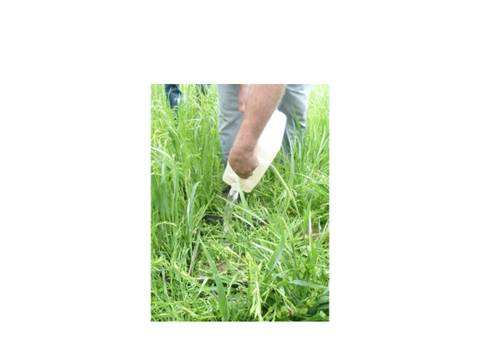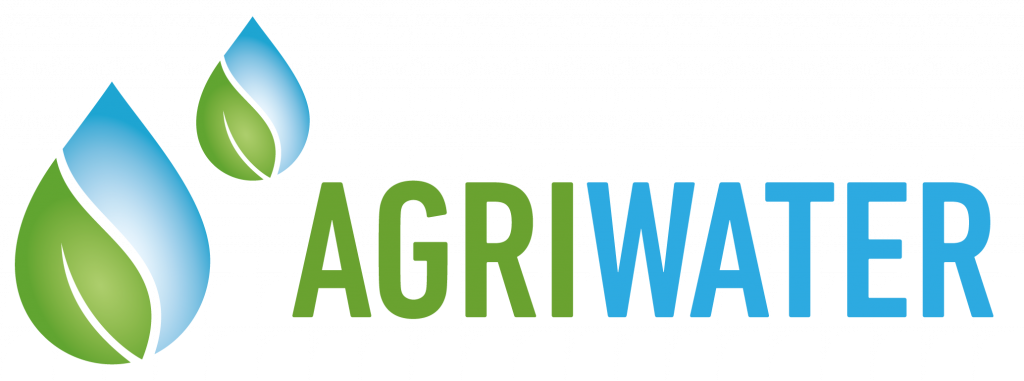Farm area/size of the organisation:
Number of workers:
Farm main activity:
The Alpine foothills, which include Upper Swabia and the Württemberg Allgäu, are a flat hilly landscape. The strong imprint of glacial processes is reflected in numerous typical landscape forms such as moraines, lakes and moors.
Baden-Württemberg lies in a transitional area between the maritime climate in the west and the continental climate in the east. This means that oceanic and continental climate influences alternate. Due to the prevailing westerly winds, the oceanic climate influences predominate, decreasing in the eastern parts of the state. The diversity of surface forms, i.e. the juxtaposition of high mountain areas and shielded basin areas, leads to considerable climatic differences even at short distances.
The farm is mainly located in the area of moraine landscape. Furthermore partly in the Jura and tertiary hill country.
Agroforestry elements relevant to nature conservation can play an important role. In addition to potential timber and fruit production, they provide environmental services in terms of biodiversity and soil and water protection. This has had and continues to have profound effects on the landscape, but also on biodiversity in the respective regions. And above all on the soil’s ability to store moisture.
The solution implemented on Peter Bloching’s farm resulted in remarkable additional health and resilience of the crops in the field, as they are better protected from erosion and better able to retain water in the soil. Furthermore, in winter when snow drifts, up to 1m of snow is captured by agroforestry landscape elements, making additional water available.
In addition to agroforestry structures, grazing is very important. The uneven distribution of cow dung and urine creates very different nutrient situations and environments over a short distance. A natural water balance between the environments is created. This also allows the soil to react very well to various stress situations.
Long-straw varieties are used, which ensure a high dew formation throughout the summer, thus promoting the soil life in the upper area and protecting it from drying out.
An evergreen ground cover also makes a major contribution to this. The evergreen soil dormancy ensures a higher presence of soil microorganisms.
Researchers have found that fungal spores rain clouds to rain.
The overarching objectives are to promote a healthy diet and to strengthen the defenses of man.
Water management concerns: improving the water storage of the. Preservation and strengthening of humus through reduced erosion.
Working more with nature than seeking technical solution. This is where causal sustainability is seen.
In 1987 severe erosion and washing away of soil on the farm areas. Since 1989 continuous improvements towards the present situation. Concentration on direct and vending machine marketing.
In 2009 conversion to organic.
The fields were already cultivated according to ecological standards before the measures described above. The additional agroforestry led to further impacts in relation to the aspects described above.
The farmer has established measures to continuously improve the standards on his farm. He developed the following mission statement:
“It is good not to work against nature. It is better to work with nature. It is best to let nature work for you.” The mission statement is : “The Mesch is orderly. Nature is in order.”
Maintenance/pruning of fruit trees as soon as the arable land or grassland is affected by excessive amounts of trees and shrubs.
The remaining component decks of the hedgerows are maintained and pushed back by grazing.
The cattle also absorb minerals at the same time.
Collaboration with a landscape biologist, natural gardener with regional connection and knowledge.
Farmer-to-farmer exchange and the adaptation to local needs. Important role of the farmer himself in terms of knowledge about regional autochthonous seeds, plants and soil qualities.
First farmer to implement such measures at the local level. Not only because of some compensation for the structure itself, but also for agronomic reasons.
Mobile pasture milking parlour on the field. Grazing of the arable land.
Diversity of products.
Innovative entrepreneurship.
Willingness to trial and error with the clear goal of being one of the best nature-based farmers each year by working with nature, or better yet, nature working for him.
Practical and scientific exchange.
Standard doctrine as much as possible and always question everything learned.
Keep in touch with the local and regional community. Keep a record of the positive and negative aspects of each action within the holistic approach to organic farming.
Awareness, field guides, explanation
Initial main reasons were soil erosion. Today’s insight: versatile reservoir of soil life. Overall, the system proved to be very good and even more efficient than expected. It has stabilised yields and for the structures there was even possible financial income under compensation.
Of course, getting to know the system and how to use it is the key to success in the beginning.
Diversity, enrichment by marginal areas.
Improved water retention capacity of the soil.
Soil protection and promotion of humus build-up.
In the end, sustainability can be measured by the health of the animal population.
Continue to improve resource use (water, soil, solar, energy) on the farm. Specifically:
As an entrepreneur, there is always something to learn. The key is to remain ambitious.


AGRIWATER project has been funded with the support from the European Commission, with the reference number 2020-1-CZ01-KA204-078212. The content of this website reflects the views only of the author, and the Commission cannot be held responsible for any use which may be made of the information contained therein.

At AGRIWATER we take the protection of your personal data very seriously. Our purpose is to protect the privacy of the data you provide us and to comply with the current regulations on the protection of personal data.
In compliance with the Act 3/2018 of 5 December on the Protection of Personal Data and Guarantee of Digital Rights transposing Regulation (EU) 2016/679, we inform you of the following information about our privacy and data protection policy:
The organization responsible of your data is Asociace soukromeho zemedelstvi Ceske republiky, ID E10133738. This is a non-governmental organization located in Prague, Czech Republic.
Address
Samcova 1177/1
11000
Praha 1
Telephone
+420266710413
+420266710414
Email contact
marketa.sandova@asz.cz
The legal basis for the treatment of your data is the consent of the data subject under article 6.1 a) of the Regulation, as well as the legitimate interest of the data controller under article 6.1 f) of the Regulation.
The data we request from you are adequate, relevant and strictly necessary and in no case are you obliged to provide them to us, but their non-communication may affect the purpose of the service or the impossibility of providing it.
Your data will be kept for the time required for the proper provision of the service offered, as well as to meet the responsibilities that may arise from it and any other legal requirement.
In the course of processing your data, Asociace soukromeho zemedelstvi Ceske republiky may share your data with:
On Projects Advising SL, as web management and maintenance service providers.
The controller retains the right to restrict the rights set forth in Article 23 of the EU Regulation, if such restriction is provided to safeguard, in particular fundamental rights and freedoms and is a necessary and proportionate measure.
If any interested party considers that their data are not being treated correctly, they can send their complaints to the following e-mail address; kristyna.strnadova@asz.cz, Asociace soukromeho zemedelstvi Ceske republiky.
The data subject declares to have acquired all this information.

A cookie is a file that is downloaded and executed on your computer, phone, or mobile device when you access certain web pages. Cookies allow a website, among other things, to store and retrieve information about user’s browsing habits and recognize the user depending on the information they contain and the way they use their computer.
Cookies do not harm your computer and are necessary to facilitate navigation.
Cookies are necessary for our website to work properly. The purpose of our cookies is to improve the user’s browsing experience. They can be used to remember your preferences (language, country, etc.) during navigation and on future visits.
The information collected in the Cookies also allows us to improve the website and adapt it to the individual interests of users, speed up searches, etc.
Analysis Cookies: These, if they are used properly by us or by third parties, allow us to quantify the number of users and thus perform the measurement and statistical analysis regarding the users’ usage of our service.
Advertising Cookies: These, if they are used properly by us or by third parties, allow us to manage as effectively as possible the supply of advertising space on the website, adapting the content of the advertisement to the content of the service requested or to the use you make of our website.
Our cookies do not store information about your personal identification, address, password, credit or debit card details, etc.
The information stored in the website’s cookies is used exclusively by us, apart from those identified below as “third party cookies”, which are used and managed by external entities to provide us with services to improve our own services and the user’s experience when browsing our website.
Third party cookies are mainly used to obtain statistics and to guarantee the payment operations are carried out.
Yes, firstly, you must disable cookies in your browser and, secondly, delete the cookies stored in your browser associated with this website.
You can restrict, block, or delete cookies from this website at any time by modifying your browser settings. This setting is different for each browser. For more details on the configuration of cookies in your browser, please consult your browser’s “Help” menu.
It is possible that some of the website’s features may no longer work if you disable cookies.
These Cookies are used to identify the user during the session, prevent the user from having to repeat authentication processes on the website, speed up some website processes, remember selections made during the session or on subsequent accesses, remember pages already visited, etc.
COOKIES
PURPOSE
DURATION
MANAGEMENT
User identification
They are used to identify and authenticate the user. They also contain technical data from the user session, such as connection timeout, session identifier, etc.
Session
AGRIWATER
Session identification
They identify the user’s http session. They are common in all web applications to identify requests from a user’s session.
Session
AGRIWATER
Navigation status
They help identify the user’s browsing status (login, first page, first access, scroll status, voting status, etc.).
Session
AGRIWATER
These Cookies obtain generic information about users’ accesses to the website (not the content of the same) to subsequently provide us with information about these accesses for statistical purposes.
COOKIES
PURPOSE
DURATION
MANAGEMENT
Google Analytics (__utma, __utmb, __utmc, __utmd, __utmv, __utmz, _ga…)
They allow website statistic’s tracking through the Google Analytics tool, which is a service provided by Google to obtain information about user access to websites. Some of the data stored is: number of times a user visits the website, dates of the user’s first and last visit, duration of visits, from which page the user accessed the website, which search engine was used or which link was clicked, from which part of the world the user accessed the website, etc. The information generated by the cookie about your use of the website will be directly transmitted and stored by Google Inc (a company located in United States). The configuration of these cookies is predetermined by the service offered by Google, so we suggest you consult the Google Analytics privacy page, for more information on the cookies it uses and how to disable them (keep in mind that we are not responsible for the content and accuracy of third-party websites).
Persistent
Third Parties